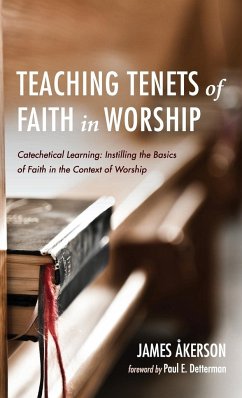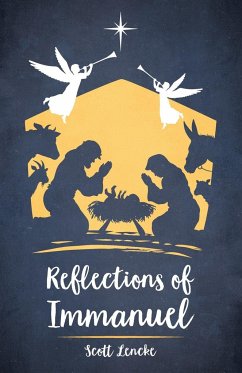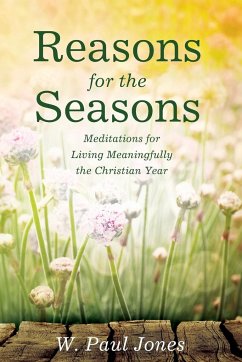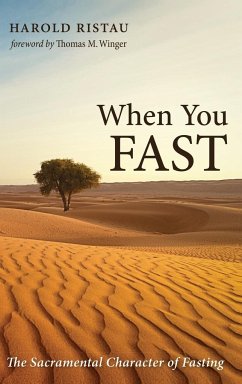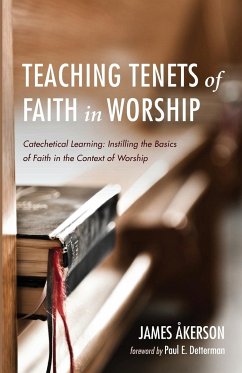
Teaching Tenets of Faith in Worship
Versandkostenfrei!
Versandfertig in 1-2 Wochen
16,99 €
inkl. MwSt.
Weitere Ausgaben:

PAYBACK Punkte
8 °P sammeln!
Western culture no longer has a broad Christian understanding. In fact, much of what American media dishes out is pantheistic or anti-religious. Sociological research indicates that a multitude of beliefs have crept into Christian understandings of faith. This situation is not new. As early as the fifteenth century, Erasmus asserted that the greatest concern of his time was that Christians were most often ""rank heathens"" when it came to their orthodoxy. It is also apparent that attendance at Sunday school, Vacation Bible School, and other gatherings has fallen at a great rate. The author bel...
Western culture no longer has a broad Christian understanding. In fact, much of what American media dishes out is pantheistic or anti-religious. Sociological research indicates that a multitude of beliefs have crept into Christian understandings of faith. This situation is not new. As early as the fifteenth century, Erasmus asserted that the greatest concern of his time was that Christians were most often ""rank heathens"" when it came to their orthodoxy. It is also apparent that attendance at Sunday school, Vacation Bible School, and other gatherings has fallen at a great rate. The author believes providing Christian education in the context of worship is therefore the best opportunity for reaching believers with historical elements of faith. A twenty-four-part lectionary-based catechetical curriculum is provided for worship. With it, congregations can dwell in a sermon series that is surrounded by supportive full-bodied worship.




